- Constantin Lipatti
- Michael Hurd
- John Arab
- Willi Brokmeier
- Sophie Gent
- Valerie Coleman
- Debussy: Cello Sonata in D minor
- Czechoslovak Free Army
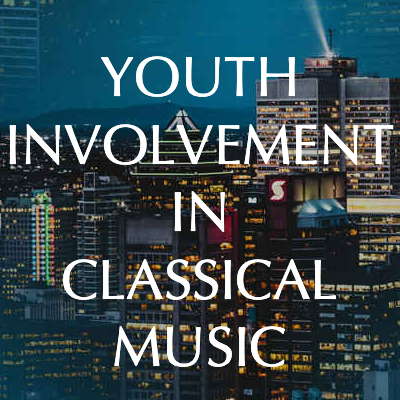 VIDEO PODCAST: John Dante Prevedini leads a discussion about Youth Involvement in Classical Music - this specially extended illustrated feature includes contributions from Christopher Morley, Gerald Fenech, Halida Dinova, Patricia Spencer and Roderic Dunnett.
VIDEO PODCAST: John Dante Prevedini leads a discussion about Youth Involvement in Classical Music - this specially extended illustrated feature includes contributions from Christopher Morley, Gerald Fenech, Halida Dinova, Patricia Spencer and Roderic Dunnett.
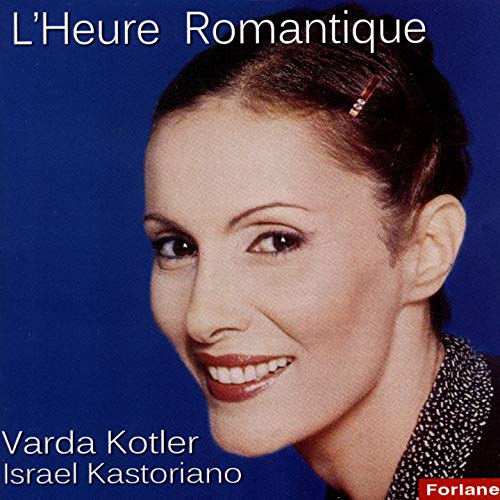 SPONSORED: CD Spotlight. Well Realized - Varda Kotler and Israel Kastoriano - recommended by Geoff Pearce.
SPONSORED: CD Spotlight. Well Realized - Varda Kotler and Israel Kastoriano - recommended by Geoff Pearce.
All sponsored features >>
ROF at Forty
GIUSEPPE PENNISI looks forward
to the Rossini Opera Festival,
11-23 August 2019, and explains why
investing in Rossini can be profitable
The Rossini Opera Festival, generally known by its acronym ROF, is forty years old. On 11 August 2019 in Pesaro its fortieth edition will start; as usual, it will include three operas, of which two are new productions - Semiramide and L'Equivoco Stravagante, a revival - the 2010 production of the rare Demetrio e Polibio, several concerts, matinée performances of Il Viaggio a Reims and a gala concert with some of the best known Rossini singers.
I have been following ROF for nearly four decades - I missed some of the first editions because at that time I was living in the United States. I have followed ROF closely since 1984 when it was staged a fabulous production of Il Viaggio a Reims, an opera that was thought to have been lost, but was retrieved almost by chance in the library of the Paris Opéra. I have reviewed ROF editions for nearly three decades for Italian newspapers and magazines, and for more than ten years for Music & Vision and Classical Music Daily. I will review this fortieth edition.
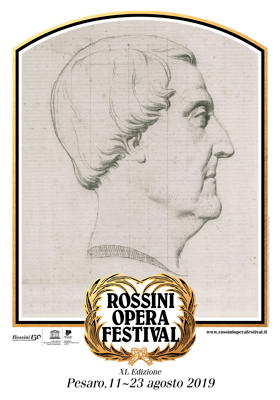
However, I think it is useful to draw a summary of ROF's achievements. When it started in 1980 with three performances of La Gazza Ladra and two of L'Inganno Felice, ROF seemed a local initiative to celebrate a musician who happened to be born in Pesaro but had spent his artistic life elsewhere - mostly Venice, Naples, Bologna, and especially Paris. Several elements turned Pesaro, until 1980 known principally as a pleasant beach town on the Adriatic coastline, into a bel canto Bayreuth with a monographic festival internationally appreciated; about forty per cent of the audience is non-Italian and performances are easily sold out a few weeks after the box office opens.
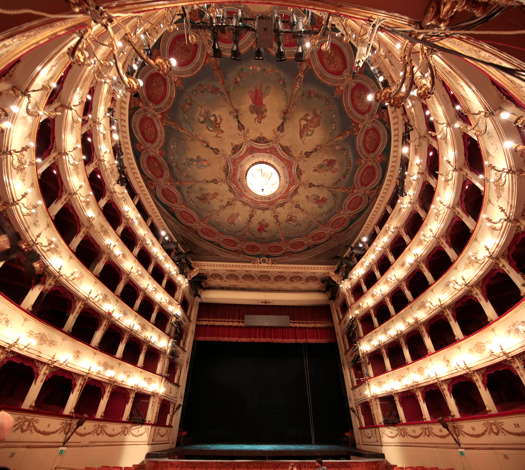
The main auditorium at Teatro Rossini in Pesaro, in 2017
The most important ingredients are: a) the persistence of the local committee supporting the festival; b) the close integration of the festival with the research activities of the Rossini Foundation and with the publication of critical editions of Rossini works; c) the fortunate retrieval of the Il Viaggio a Reims score - a major worldwide event in 1984; and d) the establishment of a Rossini Academy to train singers in Rossini's vocality.
Before ROF started its operations, only a few Rossini operas were in the repertory of major theatres both in Italy and abroad: generally, they were comedies or comic operas only because most of Rossini's opera seria and lyric tragedies had been forgotten in the second half of the nineteenth century. In addition, most of them were performed with many modifications introduced in the nineteenth and twentieth centuries. The libretti and scores were cut. Roles written for mezzos and altos were modified to fit sopranos, especially light sopranos. Now, all the Rossini operas have been produced at least once at ROF: only a pastiche - ie an opera constructed out of musical numbers from other works adapted to a new libretto - is missing. Several works premiered in modern times at ROF are now produced and performed in all major theatres worldwide. In the Black Forest in Germany, another Rossini Festival has been created, based on ROF's success. A new generation of artists has been trained to provide philological rendering of Rossini's works. These are major artistic achievements.
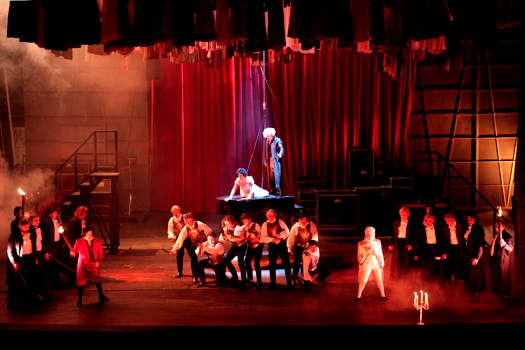
A scene from the 2010 Rossini Opera Festival production of 'Demetrio e Polibio'
ROF is financed by central, regional and city governments, several private sponsors, box office proceeds, the sale of productions, and TV and radio rights. Only a few productions are co-produced but, after their premieres at ROF, travel to other theatres in Italy and abroad.
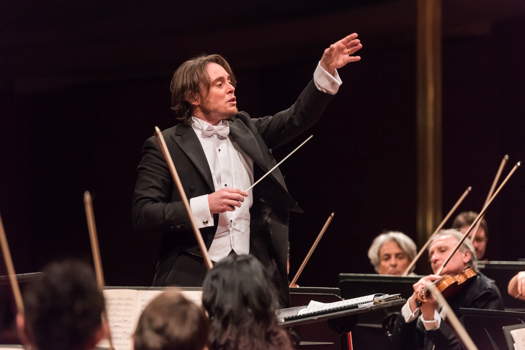
Michele Mariotti conducting at a 2017 performance at the Rossini Opera Festival in Pesaro
Every year, ROF publishes a social budget with an analysis of economic and social cost and benefits to the Pesaro area. The document is prepared by Urbino University. In short, each euro of public subsidy yields six euro of value added to the area in terms of cultural tourism and sales. Investing in Rossini is profitable.
Posted 2 August 2019 by Giuseppe Pennisi



